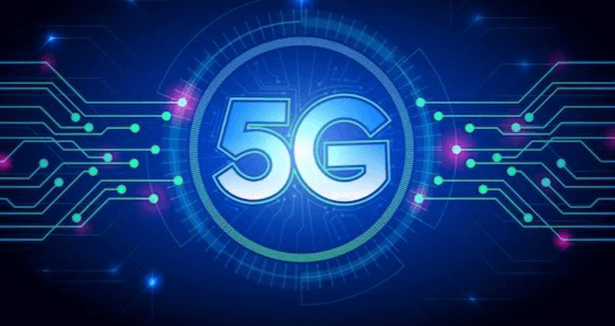What are the implications of the widespread adoption of 5G technology for businesses and consumers in the USA?

Introduction
The introduction of 5G technology marks a significant leap in the evolution of mobile communications. This next-generation wireless technology promises faster speeds, lower latency, and increased connectivity, which will revolutionize various sectors. For businesses and consumers in the USA, the implications of 5G adoption are profound and far-reaching. This article delves into the numerous ways 5G will impact the American landscape, exploring both opportunities and challenges.
What is 5G Technology?
5G, or the fifth generation of mobile networks, is designed to significantly improve upon the capabilities of 4G LTE. It offers enhanced data transfer rates, reduced latency, and the ability to connect a vast number of devices simultaneously. These improvements are achieved through advanced technologies like millimeter waves, small cells, massive MIMO, and beamforming.
Enhanced Connectivity and Speed
One of the most anticipated benefits of 5G is its unprecedented speed. With potential download speeds of up to 10 Gbps, 5G is set to be 100 times faster than 4G. This increased speed will enable seamless streaming, rapid downloads, and real-time interactions, significantly enhancing user experiences.
Impact on Businesses
The adoption of 5G will transform how businesses operate, offering new opportunities for innovation and efficiency. Enhanced connectivity will support the growth of the Internet of Things (IoT), enabling smarter logistics, more efficient supply chains, and real-time data analytics.
Improved Communication and Collaboration
With 5G, businesses can expect enhanced communication capabilities. Video conferencing will become more reliable with lower latency, facilitating remote work and global collaboration. This will be particularly beneficial in the current era where remote work is becoming increasingly prevalent.
Transformation of Industries
Several industries are poised for transformation with the advent of 5G. For example, the healthcare industry will benefit from telemedicine advancements, enabling remote diagnostics and surgery. Similarly, the manufacturing sector will see improvements in automation and smart factory operations.
Enhanced Consumer Experiences
For consumers, 5G will offer improved mobile experiences. Faster speeds and lower latency will enhance online gaming, virtual reality (VR), and augmented reality (AR) applications. Additionally, smart homes and cities will become more efficient, improving daily life.
Economic Impact
The rollout of 5G technology is expected to have a significant economic impact. It is projected to contribute trillions of dollars to the global economy and create millions of jobs. The USA, in particular, will benefit from increased productivity and innovation across various sectors.
Challenges and Concerns
Despite the numerous benefits, the adoption of 5G also presents challenges. There are concerns about cybersecurity, privacy, and the potential health effects of increased radiation exposure. Addressing these issues will be crucial for the successful implementation of 5G.
Infrastructure Requirements
The deployment of 5G requires substantial infrastructure investment. The installation of small cells, fiber optic cables, and other equipment is necessary to support the high-frequency signals used by 5G. This process will involve collaboration between telecom companies, government bodies, and other stakeholders.
Regulatory and Policy Considerations
The widespread adoption of 5G will necessitate regulatory and policy adjustments. Governments will need to create a conducive environment for 5G deployment, including spectrum allocation, cybersecurity regulations, and data privacy laws.
Role of Telecom Companies
Telecom companies play a critical role in the 5G rollout. They are responsible for developing and maintaining the necessary infrastructure, as well as providing services to consumers and businesses. Partnerships and collaborations within the industry will be essential for a successful transition.
Consumer Adoption and Accessibility
For 5G to reach its full potential, consumer adoption is key. Telecom companies must ensure that 5G services are affordable and accessible to a broad audience. Efforts to bridge the digital divide will be crucial in preventing disparities in access to 5G technology.
Impact on Smart Cities
5G will be a cornerstone of smart city development. It will enable better traffic management, energy efficiency, and public safety. Enhanced connectivity will support the integration of various systems, making cities more livable and sustainable.
Advancements in Autonomous Vehicles
The automotive industry will see significant advancements with 5G. Autonomous vehicles will benefit from low-latency communication, enabling real-time decision-making and improving safety. This will accelerate the adoption of self-driving cars and other smart transportation solutions.
Telemedicine and Healthcare
Telemedicine will become more prevalent with 5G, offering remote consultations, monitoring, and even surgery. This will improve healthcare access, particularly in rural and underserved areas, and enhance patient outcomes through timely interventions.
Enhanced Retail Experiences
Retailers will leverage 5G to enhance customer experiences through AR and VR applications, personalized marketing, and streamlined operations. This will transform how consumers shop, both online and in physical stores.
Entertainment and Media
The entertainment and media industries will benefit from 5G through improved streaming quality, interactive content, and immersive experiences. This will revolutionize how content is consumed and created, offering new opportunities for creators and businesses.
Environmental Impact
While 5G offers numerous benefits, its environmental impact cannot be overlooked. The deployment of new infrastructure and increased energy consumption are concerns that need to be addressed through sustainable practices and technologies.
Future Prospects and Innovations
The full potential of 5G is yet to be realized. As the technology matures, new applications and innovations will emerge, further transforming industries and everyday life. Continuous research and development will be essential in harnessing the power of 5G.
Conclusion
The widespread adoption of 5G technology in the USA promises to bring about transformative changes for businesses and consumers alike. While the benefits are immense, addressing the challenges and ensuring equitable access will be crucial for realizing the full potential of 5G. As we move forward, the collaboration between various stakeholders will be key to navigating this new era of connectivity.
FAQs
What is 5G technology? 5G is the fifth generation of mobile networks, offering faster speeds, lower latency, and the ability to connect more devices simultaneously compared to previous generations.
How will 5G impact businesses in the USA? 5G will enhance business operations by supporting the growth of IoT, improving communication and collaboration, and transforming various industries such as healthcare, manufacturing, and retail.
What are the benefits of 5G for consumers? Consumers will experience faster internet speeds, improved mobile experiences, enhanced online gaming, and more efficient smart homes and cities.
What are the challenges associated with 5G adoption? Challenges include cybersecurity concerns, privacy issues, potential health effects, and the need for substantial infrastructure investment.
How will 5G affect the development of smart cities? 5G will enable better traffic management, energy efficiency, public safety, and the integration of various systems, making cities more livable and sustainable.
What is the economic impact of 5G technology? The 5G rollout is expected to contribute trillions of dollars to the global economy, create millions of jobs, and increase productivity and innovation across various sectors.





